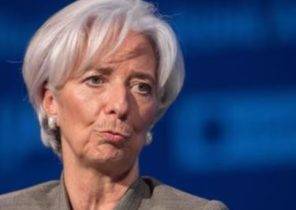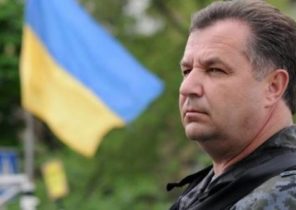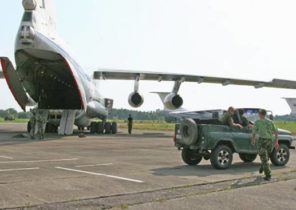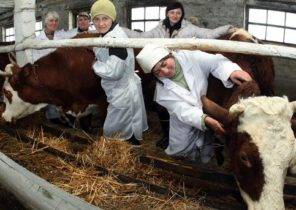
The ambassadors of Lithuania, Latvia and Estonia to Germany, asked German media to abandon the phrase “former Soviet Republic”. Moreover, diplomatic envoys stated the following — the Baltic States are not successor States of the USSR. We tried to understand how dangerous such statements are for the sovereign Lithuanian Republic.
According to the Ministry of foreign Affairs, ambassadors insulted the German section of the network edition of Zeit online (the online Supplement to the newspaper Die Zeit), where the independent and democratic Baltic republics have called “heirs to the Soviet Union.” In his address, the diplomats expressed their disagreement and dissatisfaction with this formulation. According to them, Lithuania, Latvia and Estonia was occupied thus about any legal succession may not be considered.
Know not what they do
We will concentrate on the issues of Estonian and Latvian statehood, it should be noted that for Lithuania. But in a joint statement reads as follows: the Baltic States are not successors of the rights and statehood of the Soviet Union, legally and politically they can’t be called the former Soviet republics. Does this mean that Lithuania is ready to abandon their territories in favor of the previous owners?
Based on the logic stated, Lithuania officially declares that it does not wish to have anything in common with his ancestor of the Lithuanian SSR and all its heritage. It is obvious that Lithuanian Ambassador to Germany, Deividas, Matulenis (Deividas Matulionis) is not aware of what “treatment” would set a very dangerous precedent. The statement of the ambassadors carries a huge threat to the territorial integrity of the Republic of Lithuania residing in the borders, which she received at the end of the Second world war.
The statement said that Lithuania is the successor to the First Republic of Lithuania declared independence on 16 February 1918 and ceased to exist on 21 July 1940. No doubt about it. However, our diplomat forgets about the fact that independent Lithuania (1918-1940) was severely “limited in space” — until a certain time in its composition had neither the capital Vilnius or port Klaipeda (Memel). Meanwhile, the return of these two cities was due, mainly, thanks to the support and actions of the Soviet Union.
Wilno is ours?
The capital is Vilnius the whole Vilnius region of Lithuania’s independence lost in 1920, after these territories were occupied by Polish troops of General Zeligowski. Wilno returned to the bosom of Poland for more than a decade, but in the end, the Lithuanians managed to regain the city — it was “donated” by the Soviet authorities.
October 10, 1939 was signed the Soviet-Lithuanian Treaty of mutual assistance. By agreement, occupied in September 1939 by the red Army Vilnius region was transferred to Lithuania and posted on its territory, Soviet troops numbering 20 thousand people. The Soviet Union did it as a sign of friendship and cooperation. Of course, Moscow pursued in the region, their aims, but the fact remains — Vilnius was returned to us comrade Stalin.
It is sad that modern Lithuanian historians tried to ignore it, representing Soviet Russia as an enemy, but then no one believed, and even Lithuanian President Antanas Smetona called the USSR the “best friend” and “closest ally” of Lithuania. When in the autumn of 1939 the Soviet Union returned Vilnius and the Vilnius region to Lithuania (and not annexed to Belarus), he called one of the main streets of the native Lithuanian capital, in gratitude, Union, street of Stalin-Molotov.
“Thanks to the Soviet Union and the red Army restored historical justice: Vilnius finally reunited with Lithuania and once again became its capital”, — said in a telegram of Antanas Smetona, Stalin, Molotov and Tymoshenko.
The opinion of the expert
In modern Lithuanian historiography denied the fact of voluntary entry of Lithuania into the USSR. This is true because Hitler and Stalin decided to divide the independent Baltic republics without the knowledge of their citizens. The Covenant Molov-Ribbentrop Pact recognized as a major evil, collusion, marked the beginning of the occupation of the Baltic States. At all levels of government, this document is considered to be criminal and illegitimate. But, if so, whether the right modern Lithuania to govern your territories?
It is best on this issue, at the time, said the Minister of culture Vladimir Medinsky, when it had not held this post. According to him, if Lithuania does not recognize the legitimacy of the Covenant, she has no right to claim Vilnius and the surrounding area.
“Today Lithuanian nationalists in a very difficult position. On the one hand, language is itchy to declare the Molotov-Ribbentrop Pact was illegitimate, criminal and other. And the result, in Lithuania returned to the capital Vilnius, and even 6,000 square km (!) the territory in the bargain,” he writes.
“Once in the Studio “echo of Moscow” on the show devoted to the 70th anniversary of the protocols of the Molotov-Ribbentrop Pact, one Lithuanian MP, everything tormented me on the phone about the historical guilt of Russia to Lithuania. I said so this very Stalinist agreement should be condemned?— Yeah, yeah, yo, yo! — To recognize the illegal and criminal?— To recognize! To recognize! — Denounce? To accept all of his points invalid?— Oh, Yes! Of course!… — Well, I respect Your integrity! Only then let’s return the ancient Polish city of Vilna under the jurisdiction of the Warsaw… Then, as they say, the most interesting place my opponent in the mobile battery. And more to the end of the broadcast hasn’t been charged yet”, — said Vladimir Medinsky.
From the Maas to the Memel!
Also, our Ambassador to Germany somehow forgot about the status of Klaipeda — the former German Memel, the most Northern Outpost of the great German belonging to the German nation since its founding in 1252. Lithuania owned the town only in the period from 1923 to 1939. March 20, 1939, he was returned to the Reich. The Lithuanian leadership had to yield to German native land to Hitler — otherwise the Wehrmacht threatened to occupy the whole country.
Klaipeda and the Klaipeda region of Lithuania was restored only in 1945, after the liberation of Lithuania by the red Army and its joining the Soviet Union (the beginning of the second Soviet occupation). It should be noted that the return of the port city again was due to the decision of Stalin, as the formal transfer of Klaipeda in the Lithuanian SSR took place on 20 may 1950. Then the Presidium of the Supreme Soviet of the USSR issued a decree according to which a part of the Lithuanian SSR was established a number of areas, including the Klaipeda region, which has thus been separated from the future of the Russian Federation. That is why Lithuania lawfully received the land after the restoration of independence in 1990.
Perhaps our Ambassador can’t remember what the formation of the territory of modern Lithuania was completed just after the Potsdam conference, when Stalin decided to include part of East Prussia into the Lithuanian SSR. If the Ambassador Matulenis refuses to acknowledge that Lithuania is the successor to the USSR, according to his logic, he is ready to say goodbye and Vilnius, and Klaipeda, voluntarily handed them over to Poland and Germany.
(I don’t know how to react to the Germans, but official Warsaw this idea will definitely support. Poland still believes that Vilnius and Vilnius region — it is its native land. And if in Klaipeda Germans almost gone, in the Vilnius region poles make up a large part of the population. Radical Polish revanchists, which is in Poland very much, I dream about recreating the Polish-Lithuanian Commonwealth).
Blurred ambassadors
The question remains, why did the ambassadors of Lithuania, Latvia and Estonia, all excited about this topic. Local journalists tried to understand what exactly the article caused such a strong reaction, but nothing “insulting the feelings of the Baltic States” is not found. In turn, the Estonian commentator Vladimir Postnikov devoted to the topic of a separate publication.
“I honestly don’t know what kind of article we. Maybe we are talking about recurring series “Das Erbe der Sowjetunion”, dedicated to how we have lived the countries included in the USSR? No, the article about Estonia in General from the local ladies Christina Kallas, Director of Narva College. There is about us, Russian-speaking citizens, non-citizens and other citizens. What we “scoops” and all that. OK, whatever, maybe had a different opinion (one of the “chips” Die Zeit that the newspaper is a “place for debate”, where different opinions meet), but after the Embassy scribble him out. Or in articles about Latvia and Lithuania have something to eat. By the way, is insanely a lot of copyright material, this is important. In a country with a free press does not violate the laws the opinion of the author could be anything,” he writes.
“That’s not the point, the point is that the usual series of articles on the usual, not very well-known the website is not very popular in Germany, newspaper called “fag” as many as three ambassadors of independent States. Well this is how we should be “concerned about” his “occupation”, so nervously react? That’s really, imagine the headline: “the Russian Embassy is outraged articles Edward Lucas on Postimees”, “At Delphi, someone is wrong”(…) But also a collective complaint can be made on behalf of the ambassadors of Russia, Belarus and Kazakhstan, for example. Or Uzbekistan, or Turkmenistan is also can rebel. There is in Estonia, the Embassy of Turkmenistan? And anyway, if some countries knew about what Estonia, Latvia and Lithuania, their offices (if they were) could be resent without any breaks for food and sleep.
But the Uzbeks understand that this activity gives is not even very easy crazy. Baits and not. Probably now continue stirring until paws in the German segment of the Internet, searching for those publications in which someone wrote something does not match the official version. Which soon for the gospel, pardon the blasphemy, will be considered. Step to the left and all to burn the heretic,” writes Vladimir Postnikov.
And the Germans and not against
Noteworthy is the fact that the staff of Die Zeit, agreed with the conclusions of the three ambassadors, promising, in the future, to abandon the phrase “former Soviet Republic” or “Soviet legacy”. The situation is very ironic because the Germans, unlike the Baltic diplomats who know the story well. Remember the outcome of the great Patriotic war decisions of the Potsdam conference, Nuremberg, remember the painful surrender and defeat, remember about international law, but not only… they Still remember that the Baltic States for centuries were part of their area of influence. About East Prussia and the Northern frontier of the Memel and should not be said, for this earth is the lost heritage of the German nation. Not surprisingly, the publication agreed with the request of the Baltic diplomats.
It is possible that the ambassadors of Lithuania, Latvia and Estonia to Germany, so consider that these lands — the heritage of the Germans, so don’t mind throwing away parts of the territories of the republics in favor of Germany (!?).
As previously reported by independent information-analytical portal three Lebanese source.lt, the Lithuanian press has ironically responded to the request of the ambassadors, Recalling that most of the leaders of Lithuania, including President Dalia grybauskaitė and foreign Minister Linas Linkevičius, were members of the Communist party, former activists of the Komsomol, the party chiefs. After the restoration of independence they had formed a new political elite, deleting from the biography of the turbulent Communist past.







